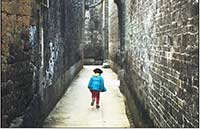China's top court breaks case record
By CAO YIN (chinadaily.com.cn) Updated: 2016-10-17 19:13An official of China's top court revealed on Monday that the number of administrative cases accepted so far has hit a record high.
From January to September, the Supreme People's Court filed more than 2,000 cases between governments and residents, "which is the new record high for us," said He Xiaorong, chief judge of administrative tribunal under the top court.
"The number of such litigations we accepted in the past was about 400 every year, but it may break through 3,000 by the end of this year."
The rapid increase has been attributed to a new Administrative Procedure Law and a judicial reform of case filing, both effective since last year, according to him.
Under the new policies, Chinese courts are required to accept appeals without hesitation and reply to litigants in a timely manner. It means an appeal should be received once it is registered instead of waiting until a preliminary review of the merits of the case has been completed, the policies said.
"The rules have eased the process of filing an administrative case and also brought a burden of case hearings for judges," He said.
Chinese courts filed 156,430 administrative litigations between January and August, and the number of such lawsuits the courts accepted since the new policies took into effect increased by 55.66 percent, according to a statement by the top court.
One of its reports disclosed in March that the national courts at all levels concluded 121,000 administrative cases in 2015.
Of the concluded, governmental departments as defendants failed in 13.78 percent of the lawsuits, "or it is not hard for residents to win an administrative case," he explained.
As shouldering the pressure brought by the increasing number of cases, he added that how to try these disputes professionally is also being taken into consideration.
"A number of administrative disputes relate to special industries, including enviornmental protection and house purcahse, which asks judges to learn more knowledge in these fields for making fairer verdicts," he said.
- China to play important role in building more powerful telescopes to observe distant galaxies
- China launches manned spacecraft
- Cancer agent found in 44 cities' drinking water
- Agreements signed to help poor ahead of Poverty Relief Day
- China boosts soft power by training foreign journalists
- Xi praises Cambodia royalty for cultivating friendship
- Li cites innovation in visits to high-tech firms
- Overseas studies pay off
- Xi: China backs stability and growth in Cambodia
- Li vows anew to ease market access









